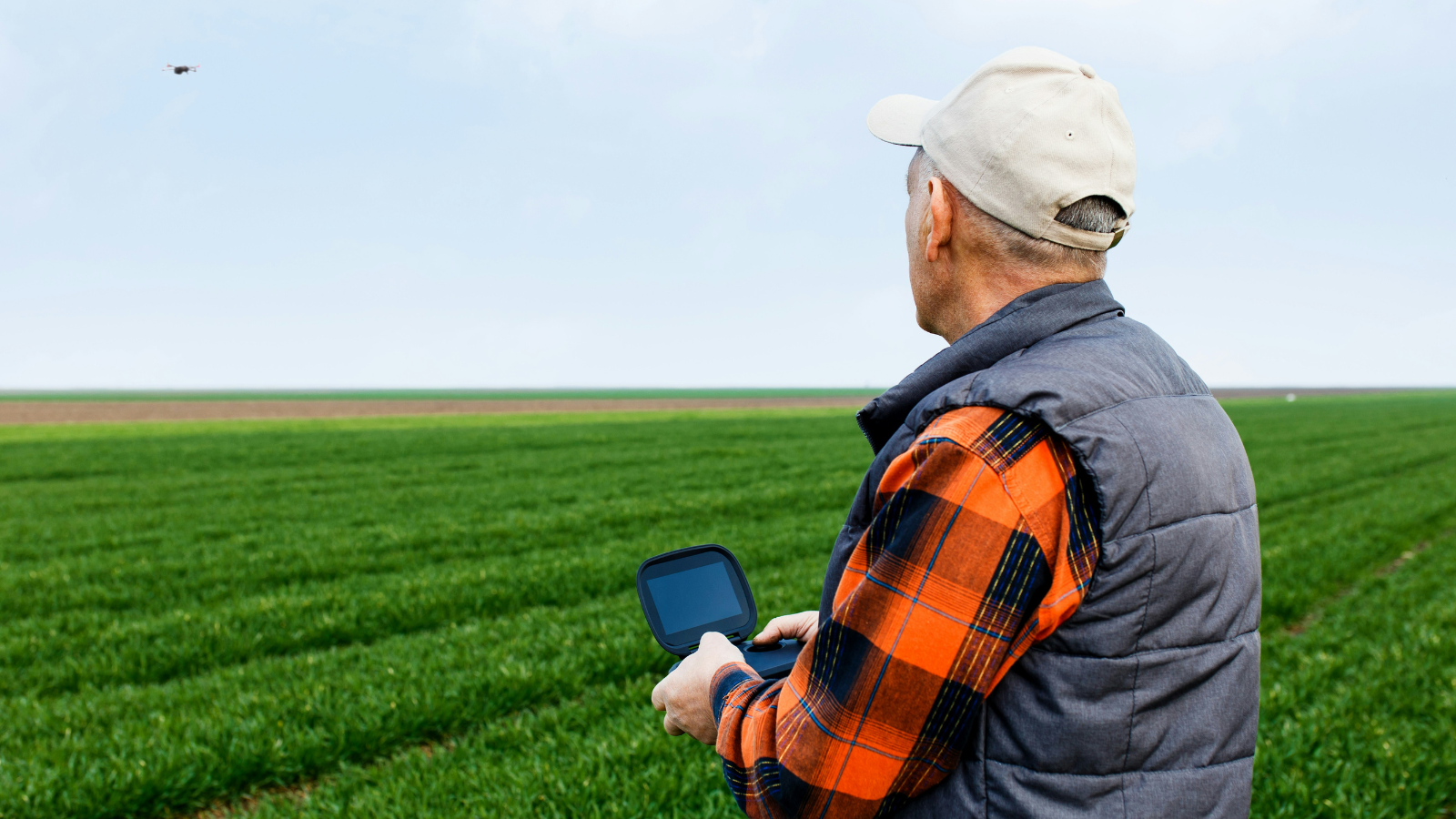Science
Canada Secures Only 2% of Global Farm Tech Investment

Canadian agriculture faces significant challenges as a recent report highlights the nation’s limited engagement in global farm technology investment. According to a new analysis by Farm Credit Canada (FCC), led by business intelligence analyst Bethany Lipka and senior economist Isaac Kwarteng, Canada captures just 2% of the global market for farm tech investment. This figure underscores the pressing need for increased research and development to bolster the sector’s productivity and competitive standing.
In the first quarter of 2025, Canadian farm cash receipts reached $25.6 billion, reflecting a 3.1% increase from the previous year. While initiatives to promote Canadian goods have shown some success, farmers are grappling with ongoing geopolitical uncertainties and the impacts of climate change, including severe wildfires. The FCC report warns that without a significant increase in investment in technology and research, Canadian producers will struggle to adapt and thrive in the global agricultural landscape.
Long-term Decline in Agricultural Research
The report reveals that Canada’s agricultural research and development (R&D) has been in decline for over three decades. Once a leader in “agriculture knowledge generation,” Canada has fallen behind countries such as the United States and Japan, as well as the average among OECD nations. This decline is characterized by reduced government budgets for agricultural R&D and related data sharing, which are essential for innovation.
A paper from the University of Calgary’s School of Public Policy indicates that every dollar spent on agricultural R&D can yield returns of $10 to $20. In 2023, the Canadian government invested over $829 million through Agriculture and Agri-Food Canada, a figure that far exceeds private sector contributions. Despite this, Canadian agtech investment has not kept pace with the United States, where funding and innovation hubs, such as those in Silicon Valley, have accelerated the adoption of advanced agricultural technologies.
Comparative Analysis and Future Recommendations
The FCC report highlights that Canadian companies accounted for only 5% of global agtech deals and a mere 2% of total deal value between 2018 and 2024. This limited participation restricts opportunities for Canadian innovators to scale their solutions and for local producers to access proven technologies.
Comparative strategies from abroad offer valuable lessons. The United States has utilized extensive public and private funding, fostering innovation in robotics and precision agriculture. In the European Union, programs like Horizon Europe emphasize sustainable practices, with countries such as the Netherlands leading in controlled-environment agriculture. Japan’s focus on automation and data-driven systems addresses critical labor shortages and land constraints, demonstrating how targeted capital can align innovation with industry needs.
The report outlines five strategic recommendations for Canadian businesses to close the investment gap. These include increasing private R&D spending with a focus on commercialization, exploring technology solutions from international markets, strengthening collaborative networks among researchers and investors, reducing barriers to technology adoption, and prioritizing sustainability in innovation investments.
For stakeholders in Canada’s agri-food economy, the report emphasizes the urgency of enhancing productivity, not just in terms of quantity but also in quality and resilience. The current moment presents a critical opportunity to act, particularly for agtech entrepreneurs seeking to commercialize solutions and for established agribusinesses to embrace technology as a core component of their competitive strategy.
Darren Baccus, executive vice-president of Agri-Food, Alliances and FCC Capital, noted, “Canada’s economic future requires an agri-food industry that takes an advanced approach to innovation and productivity.” He highlighted the historical scarcity of investment dollars and the need for scaling resources to meet the sophisticated requirements of the sector.
Closing the gap in Canada’s agtech investment is essential for maintaining its position in global food markets. By leveraging foreign innovations and enhancing domestic R&D efforts, Canada can achieve significant near-term gains while preparing for a more sustainable agricultural future. The potential return on investment for agricultural R&D remains among the highest in the economy, making it imperative for leaders to prioritize these strategic investments.
-

 Politics4 weeks ago
Politics4 weeks agoSecwepemc First Nation Seeks Aboriginal Title Over Kamloops Area
-

 World5 months ago
World5 months agoScientists Unearth Ancient Antarctic Ice to Unlock Climate Secrets
-

 Entertainment5 months ago
Entertainment5 months agoTrump and McCormick to Announce $70 Billion Energy Investments
-

 Science5 months ago
Science5 months agoFour Astronauts Return to Earth After International Space Station Mission
-

 Lifestyle5 months ago
Lifestyle5 months agoTransLink Launches Food Truck Program to Boost Revenue in Vancouver
-

 Technology3 months ago
Technology3 months agoApple Notes Enhances Functionality with Markdown Support in macOS 26
-

 Lifestyle3 months ago
Lifestyle3 months agoManitoba’s Burger Champion Shines Again Amid Dining Innovations
-

 Top Stories2 months ago
Top Stories2 months agoUrgent Update: Fatal Crash on Highway 99 Claims Life of Pitt Meadows Man
-

 Politics4 months ago
Politics4 months agoUkrainian Tennis Star Elina Svitolina Faces Death Threats Online
-

 Sports5 months ago
Sports5 months agoSearch Underway for Missing Hunter Amid Hokkaido Bear Emergency
-

 Politics5 months ago
Politics5 months agoCarney Engages First Nations Leaders at Development Law Summit
-

 Technology5 months ago
Technology5 months agoFrosthaven Launches Early Access on July 31, 2025



















